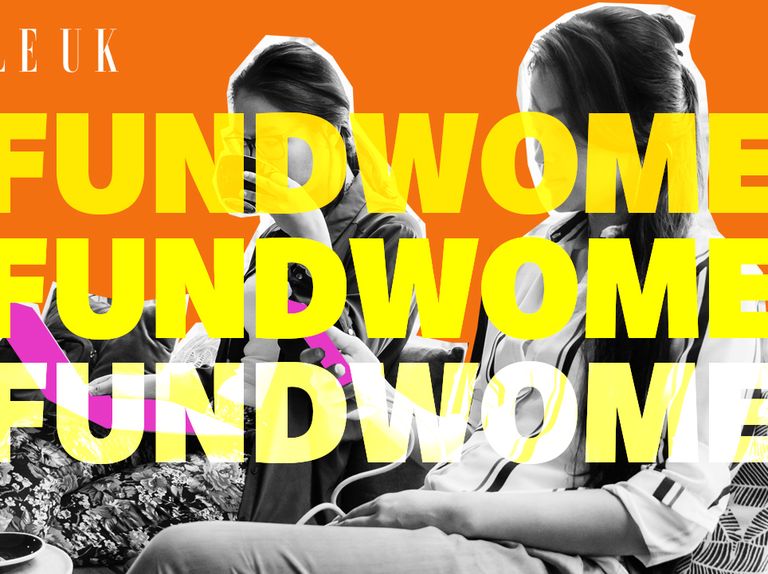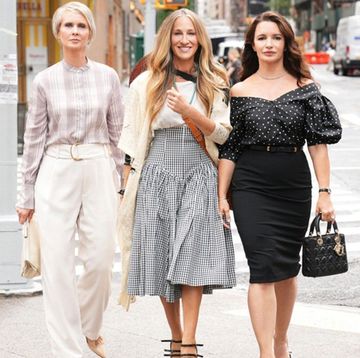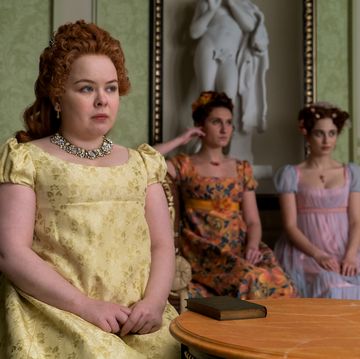Picture the scene: two entrepreneurs, both pitching for private equity funding to help grow their businesses. One is a business analyst, running a peer-to-peer fashion rental service. The other is the founder of a social media platform, helping content creators across the globe earn an income. Both have experience, detailed business plans and promise a high rate of return. But one of them stands to receive 89 times* more funding than the other, for the single, irrelative reason that that person is a man.
For some, that discrepancy won’t sting as much as it should. After all, the fact that women are paid less than men is well recognised. As it stands, the UK's gender pay gap for full-time UK employees is such that women earn, on average, 11.9% less than a male counterpart doing exactly the same job. But there’s a ‘sister’ issue at play in the world of business that not only exacerbates the gender wage gap, but rocks the very foundations of the world’s development if not addressed. And that issue is: the gender funding gap.
Women inventors and female founders have had a measurable, profound impact on the way we function as a society. And yet, in the UK, we receive a shamefully low percentage of venture capital funding for our ideas. Without women, the world wouldn’t have computer software (Grace Hopper), the contraceptive pill (Margaret Sanger), rocket fuel (Mary Sherman Morgan), beer (Abbess Hildegard Von Bingen) and the one of the most important inventions in recent modern medicine – the Covid-19 vaccine (Professor Sarah Gilbert). Moreover, according to statistics, women-led businesses in the UK generate more revenue, deliver double the return on investment, and fail less often than male-led businesses.
And yet, according to research commissioned by former Chancellor Philip Hammond and undertaken by the British Business Bank together with Diversity VC and BVCA, for every £1 of venture capital investment, less than 1p goes to all-female led teams. By comparison, all-male founder teams receive 89p and mixed-gender teams acquire the remaining 10p.
In 2019, the Treasury commissioned Alison Rose, the CEO of NatWest, to lead an independent review, titled The Alison Rose Review of Female Entrepreneurship, to identify the barriers female entrepreneurs and inventors face, and ways to unlock their talent. It found that there were twice as many male entrepreneurs as female (despite the fact women make up 51% of the world’s population), and that if women started and scaled new businesses at the same rate as men, they could add up to £250bn of new value to the UK economy.
‘The Rose Review identified changes that needed to take place: more transparency about how female entrepreneurs were funded, new investment to increase the amount of funding, and more mentorship and networking opportunities,’ Rose tells ELLE UK. ‘We’re working to make that change happen, but female-led businesses are still underfunded and we can’t afford to accept the status quo.’
To get a sense of the impact the funding gap has on business owners, we spoke to entrepreneur Danielle King, who self-funded her female-focused slow fashion sportswear brand, KIHT Collective, in 2020, with the help of a bounceback loan scheme during the pandemic. While the 37-year-old’s company has attracted investors, King believes the growth of her business had been impacted by systemic issues associated with gender bias. ‘I feel I’d be taken more seriously if I was a male founder, especially in business settings where I feel women are often overlooked,’ she tells ELLE UK.
Meanwhile, Caroline Newte Hardie launched her London-based hybrid childcare and workspace, Peace + Riot last year. In the summer of 2020, the pandemic cost her more than a quarter of the commitments of the initial funding that she had raised. So, to make her launch possible, she had to canvass for funding a second time. She appealed to her female network and in just 30 days she raised £30,000 from 27 women. While what she did was impressive, Newte Hardie thinks improving access to seed funding (i.e. the type of financing used in the formation of a start-up) for women is essential because, she says, women can’t rely on women business networks alone for financial support. This is in part, she points out, because of the gender wage gap: ‘Women are brilliant networkers, but it's fair to say that within their networks there might not be multiple high earners at hand.’
We know what you’re thinking: Why is there a funding gap in the first place? Women do not lack ability, ambition or business acumen. As Eva Lindholm, Head of Wealth Management UK and Jersey at UBS, described the gender investment issue last year at the Harper’s Bazaar Summit: ‘It's not a gender funding gap, it's a gulf. It's a void. It's the Grand Canyon. The problem is not the women, it's the system.’ Unsurprisingly, the ‘system’ – think banks, venture capitalists, and the Government – is deeply flawed. The 2019 Rose Review found that problems such as homophily (the tendency for people to associate and bond with those who are similar to them), as well as unconscious bias have a mammoth impact on how much funding a female inventor, entrepreneur or businesswoman receives. In other words, when those holding the purse-strings are men, there will be a bias towards paying out to other men. Additionally, UBS' Funding Gap 2021 paper highlighted the challenges created by the lack of diversity among investment decision makers. When those holding the purse strings are white men... well, you know the rest.
To make matters worse, the pandemic has stifled female entrepreneurs' and inventors’ growth. In February, the newly-published Rose’s 2022 Progress report found that female entrepreneurs spent twice as long on caring responsibilities during the pandemic as their male counterparts, and were 62% less likely to have their businesses recover from Covid-19.
The situation appears to be improving, albeit painfully slowly. The Rose 2022 Progress report found that, in the last three years, female-founded businesses have now outstripped growth in male led firms for the first time, and more women than ever are starting new businesses, with more than 140,000 companies established by all-women teams last year (this figure is now growing by a third each year). In addition, the proportion of companies created by young women is growing faster than any other age group, with 16–25-year-olds launching more than 14,000 new businesses in the UK last year. ‘This report shows women are shattering the entrepreneurial glass ceiling, which is a huge step forward in ensuring our economy and society is making best use of all our talents,’ says Minister for Business Paul Scully MP.
In addition, a total of 134 businesses – which have nearly £1 trillion of investment power – have now signed up to the Investing in Women Code (a commitment by financial services firms to improving female entrepreneurs’ access to tools, resources and finance). ‘All the signatories commit to making sure a member of their senior team is responsible for supporting equality, gathering and sharing data on supporting female led businesses and making it easier for female entrepreneurs to get the tools and finance they need to succeed. Work like this, company by company, can drive real change,’ Rose says, adding: 'Fresh opportunities and extra support will make a real difference, but money is critically important.'
But commitment to change is just a drop in the ocean when it comes to reengineering the landscape for women in this area – we need action. That’s why, to mark International Women’s Day 2022 (March 8), ELLE UK is launching a social-media first #fundwomen campaign, not only to raise awareness of the funding gap, but to challenge financiers and the Government to inject vital capital into women-led ventures.
Because if this is what we've done with less than 1p for every £1, imagine what we could do with equal investment.
*The British Business Bank's UK VC & Female Founders report from 2017.
Please share our #Fundwomen video on your social media platforms.
The #Fundwomen video was created Amy Brewster and Ana Davila. Track 'Girls Can Do Anything' performed by Jules Jones.

Katie O'Malley is the Site Director on ELLE UK. On a daily basis you’ll find Katie managing all digital workflow, editing site, video and newsletter content, liaising with commercial and sales teams on new partnerships and deals (eg Nike, Tiffany & Co., Cartier etc), implementing new digital strategies and compiling in-depth data traffic, SEO and ecomm reports. In addition to appearing on the radio and on TV, as well as interviewing everyone from Oprah Winfrey to Rishi Sunak PM, Katie enjoys writing about lifestyle, culture, wellness, fitness, fashion, and more.

















